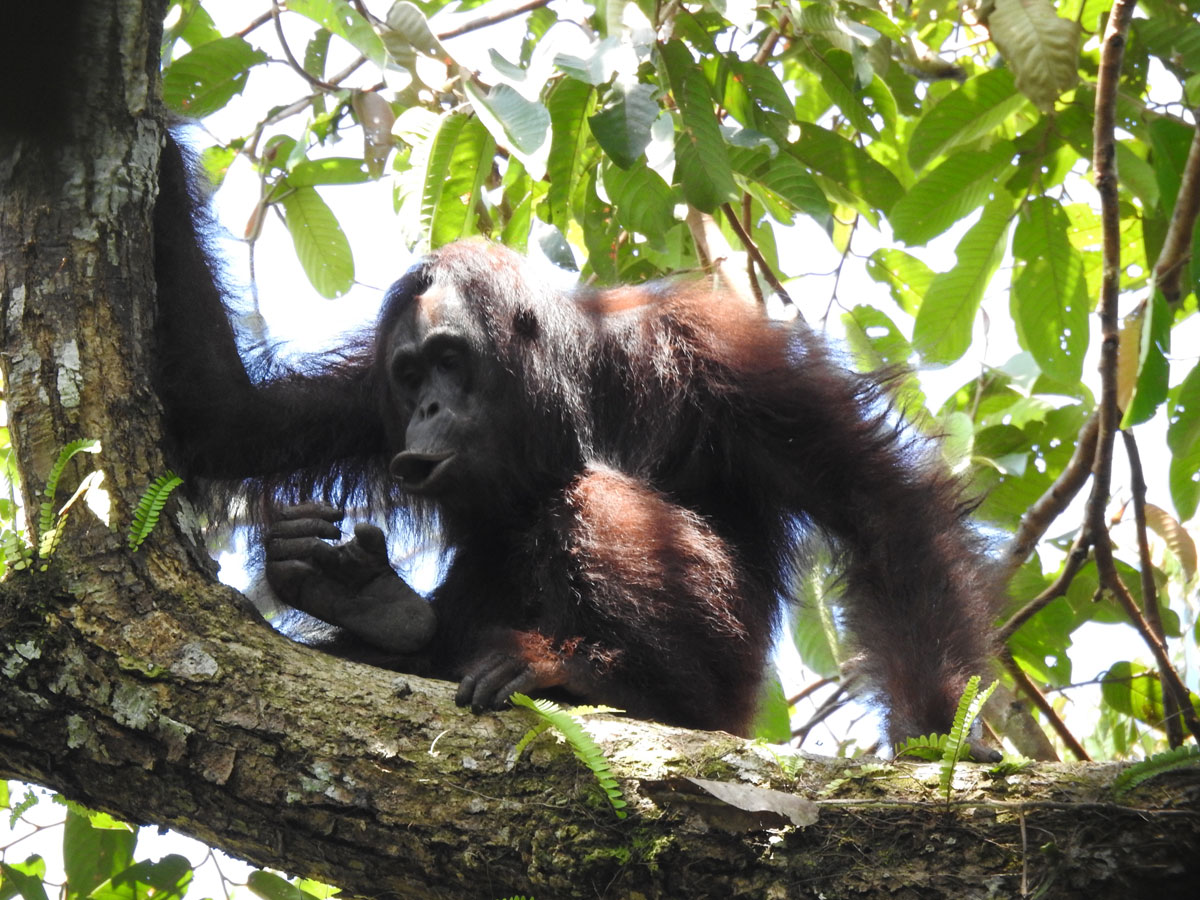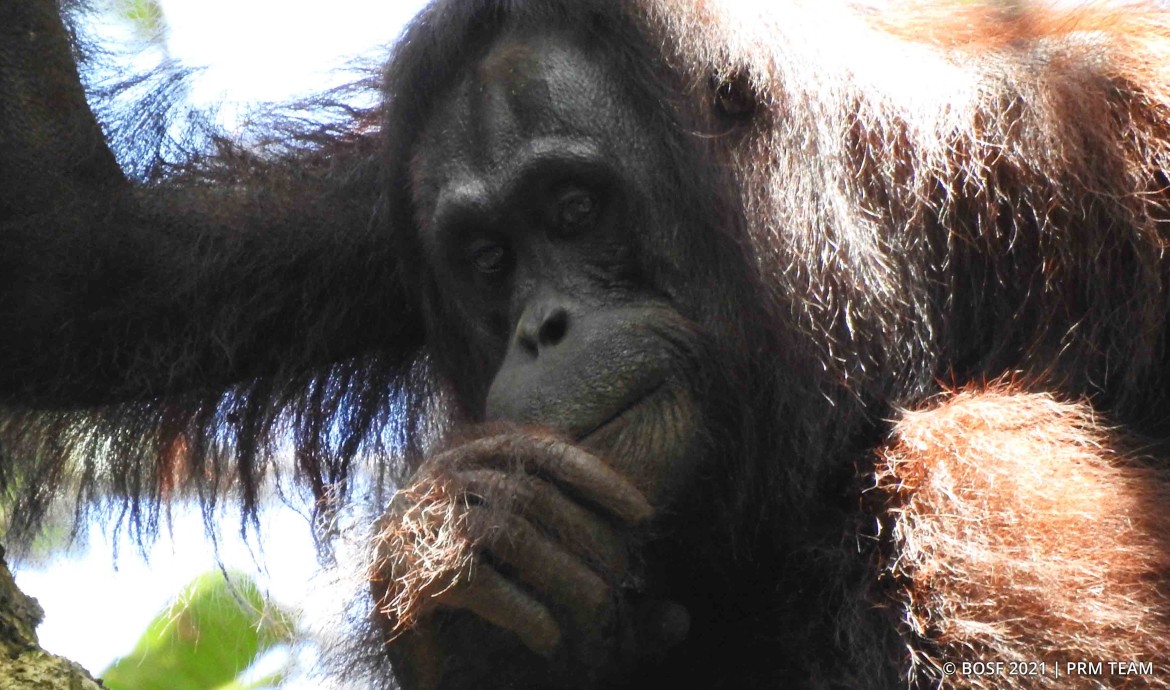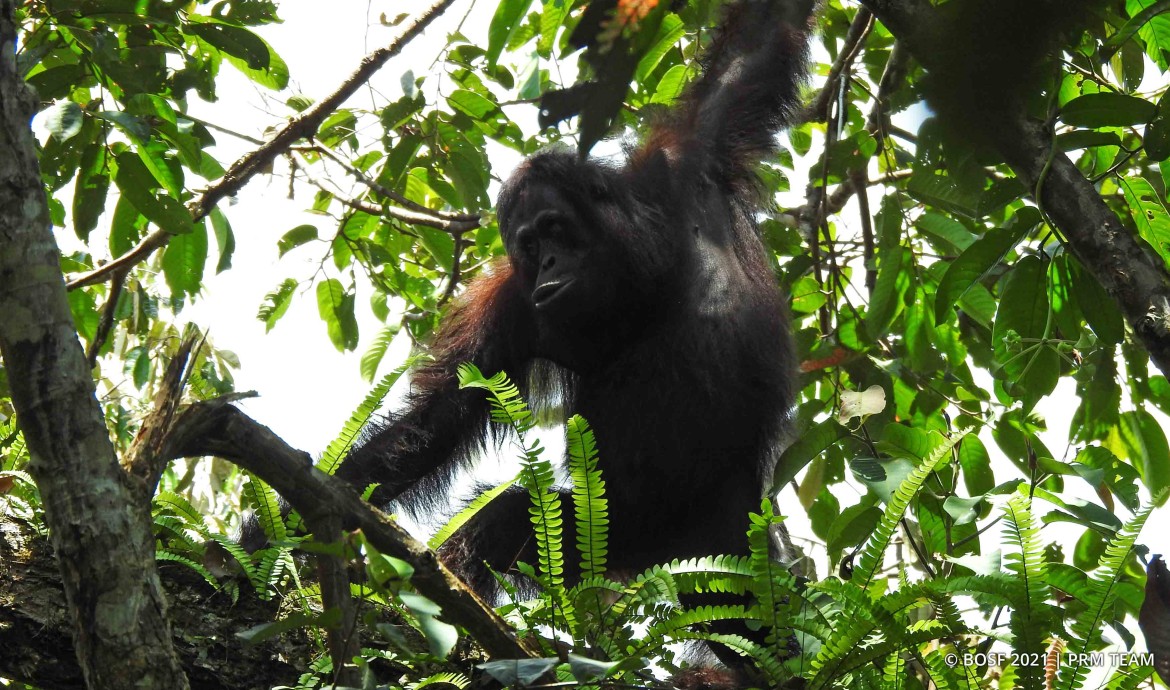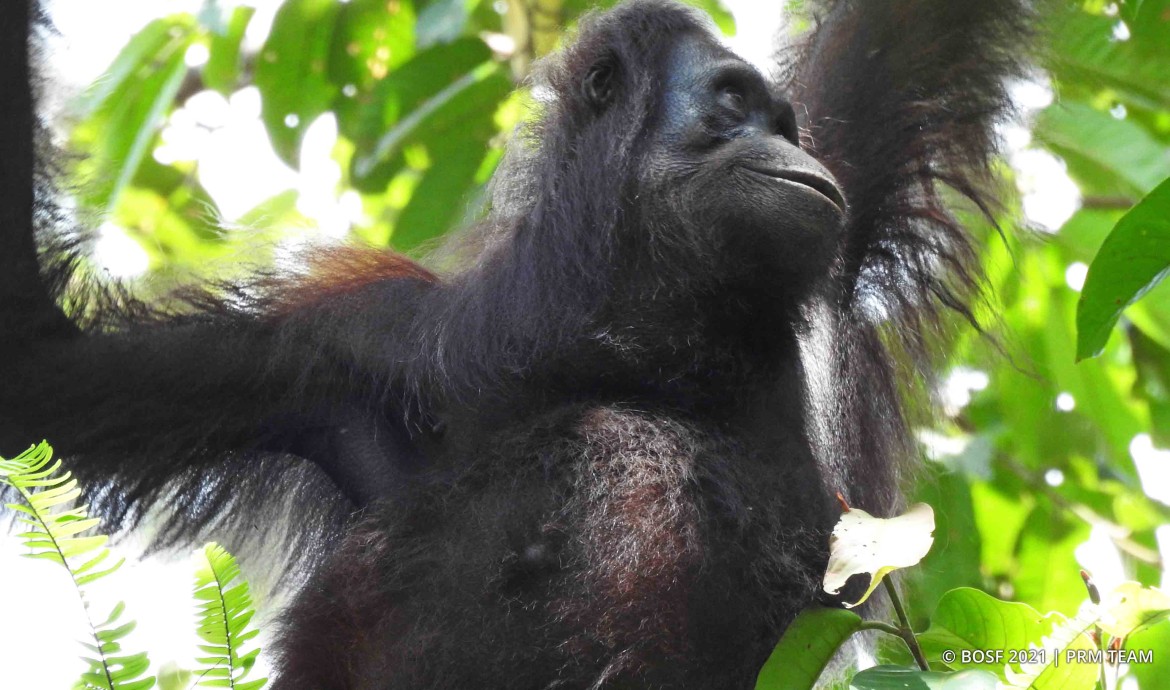BOSF: Nyiwuh Needs Her Space!
Date Posted 11/14/2021
Text by: BOS Foundation PRM Team from TNBBBR, Central Kalimantan
It is only natural for rehabilitated orangutans, who have been released in the forest and lived in the wild for quite some time, to show discomfort at human presence. Even if these humans are a familiar sight because they belong to our Post-Release Monitoring (PRM) team.
Our PRM team from the Lewun Kahiyo Monitoring Camp, in the Bukit Baka Bukit Raya National Park (TNBBBR), Central Kalimantan, set off one day in April to monitor orangutans.
After leaving the monitoring camp, we hiked through transect after transect while looking for signs of orangutans. Exploring the forest and enjoying the pristine natural surroundings is something that distinguishes our work from typical employment in urban areas and, for that, we feel very fortunate and satisfied.
Around noon, we spotted an orangutan who was busy eating. Not wanting to miss a moment, we immediately took out our notepads and observation kits. We quickly managed to identify the female orangutan as Nyiwuh, who was released in TNBBBR in February 2017. During observations, Nyiwuh was seen eating various types of fruits, orchids, pandanus grass, and termites. She appeared to be thoroughly enjoying a smorgasbord of wild forest food.
At Nyaru Menteng, Nyiwuh’s rehabilitation process lasted about 13 years. At the time of her release, she had already mastered all the natural skills needed to survive and had also developed a strong, independent nature. Not surprisingly, Nyiwuh managed to adjust to her new environment very well. So well, in fact, that she refused to share her surroundings with humans, as evident from her response when she noticed our presence that day. Nyiwuh immediately emitted a kiss-squeak, a form of vocalization to indicate displeasure. She also threw twigs at us, warning us to stay away.
In order to continue our observations of her without causing stress, we quickly retreated and sat very quietly, relying on binoculars to observe her activities. Fortunately for us, Nyiwuh could not spot us easily in our new position and as such she became more relaxed. This gave us the opportunity to continue our observations of her.
That day, we were lucky that Nyiwuh didn't move around much in the canopy, which meant that we didn't have to move much either. When the evening set in, Nyiwuh started to build her night nest not far from the initial location we found her.
Have a good rest, Nyiwuh, take care!




